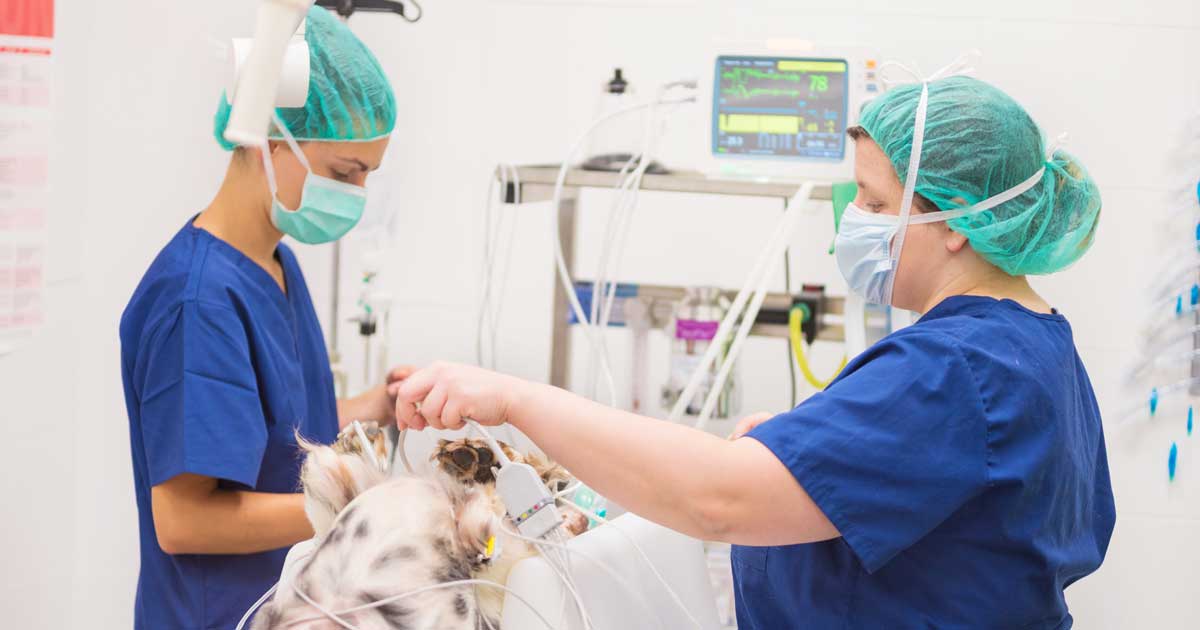Thanks to it that shall not be named (the pandemic) I started my clinical work experience or “extramural studies” (EMS) a little later than is usual for a veterinary student.
Having 10 weeks of work experience cancelled out from under me in 2020 did feel incredibly frustrating at the time, but in hindsight, I think it made me appreciate my first few weeks of clinical work so much more.
With this in mind, I wanted to provide a couple of tips for any student who, like me, are a little late to the game, or who are simply looking to get a little more out of their placements – whether it be clinical or pre-clinical.
1. Don’t be afraid to ask questions – or answer them!
I’ll be honest, I dread being quizzed and questioned by a seasoned veterinary professional as much as the next person. The key, however, is to think back to your university interview days: it is impossible for you to know everything, and there are bound to be parts of the course you haven’t even covered yet – vets do understand this.
When you’re asked a question in practice, you’re not expected to get it right 100% of the time, but to give it your best shot. Questions are designed to get you thinking, and as long as you apply yourself and have a go, you’ll gain far more respect from your peers than if you hadn’t tried at all. Remember: any answer is better than a blank-faced stare of internalised horror.
Likewise, vets expect you to ask questions back, so if you don’t know the answer to a particular question asked of you by one vet, there’s nothing stopping you from asking another vet about it later in the day.
Be curious and engaged, and if you don’t understand what’s going on, just ask.
2. Get stuck in
Now this one certainly applies to any stage of your training, whether you’re visiting a farm or a referral hospital. Placement providers appreciate students who aren’t afraid to get their hands dirty – be it literally or metaphorically – so pick up that broom, laryngoscope, mop or stethoscope and give everything that’s offered to you a go.
Vets are often busy and focused on the task at hand, so you may have to ask if you can have a go at intubating, or that SC injection, or using the thermometer. The worst they can say is no if, perhaps, there isn’t time. However, in my experience, asking to try something makes them more likely to offer you the chance further down the line.
When it comes to certain things, it helps to take initiative:
- See a dull looking calf? Report it to the farmer.
- See a dirty consult table? Clean it.
And if you find yourself without anything to do between consults and ops, or in a lull between milking sessions, asking a nurse or farmhand if there are any odd jobs that need doing is a surefire way to bring a smile to their day.
When it comes to most farms/vet practices, there’s always something to be done.
3. Keep your head in the game
To paraphrase Dolly Parton, working 9 to 5 can take its toll – and I’m sure she would have been shocked to know the hours an average vet or farmer clocks in each week.
Not many vets work 9 to 5. Some work 12 hours a day or even longer, and if you’re not used to a busy work week then you may find yourself flagging by day four or so.
It can be all too tempting to zone out, check your phone or stare out of the window thinking about what you’ll have for dinner that evening – but all the time you’re doing that, really interesting stuff could be going on around you without you even knowing.
No placement provider is impressed by a student who looks bored or disengaged, but beyond that, by not paying attention you’re robbing yourself of really vital experience that is only meant to benefit you and your career.
Try bringing a bag of mints or sweets to keep your energy topped up during the day, bring a notebook or revision book to study from in the quiet hours, and maybe leave your phone in your bag instead of your pocket, so you won’t be so tempted.
4. Enjoy it!
At the end of the day, EMS is meant to be an enjoyable and exciting experience. It’s a glimpse into the future for most vet students, and even for students who choose not to go into clinical work, it can teach you a lot about client communication, business management and how to cope with a busy workload.
It’s perhaps a slightly overused saying, but when it comes to work experience, “you only get out what you put in” – so I wholly encourage you to throw yourself into your placement (not literally of course – literally, walk calmly and confidently into your placement).

Leave a Reply